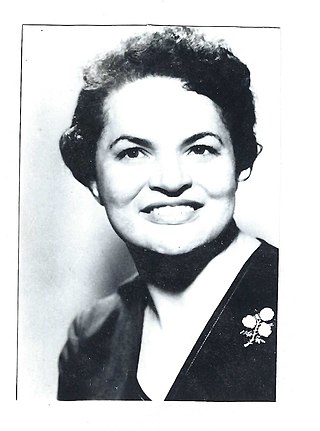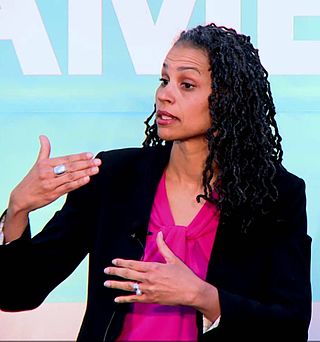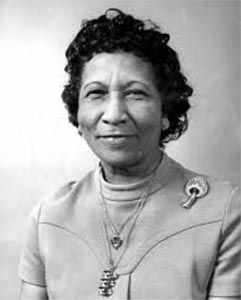
The civil rights movement was a social movement and campaign from 1954 to 1968 in the United States to abolish legalized racial segregation, discrimination, and disenfranchisement in the country. The movement had its origins in the Reconstruction era during the late 19th century and had its modern roots in the 1940s, although the movement made its largest legislative gains in the 1960s after years of direct actions and grassroots protests. The social movement's major nonviolent resistance and civil disobedience campaigns eventually secured new protections in federal law for the civil rights of all Americans.

Horace Julian Bond was an American social activist, leader of the civil rights movement, politician, professor, and writer. While he was a student at Morehouse College in Atlanta, Georgia, during the early 1960s, he helped establish the Student Nonviolent Coordinating Committee (SNCC). In 1971, he co-founded the Southern Poverty Law Center in Montgomery, Alabama, and served as its first president for nearly a decade.

Ella Josephine Baker was an African-American civil rights and human rights activist. She was a largely behind-the-scenes organizer whose career spanned more than five decades. In New York City and the South, she worked alongside some of the most noted civil rights leaders of the 20th century, including W. E. B. Du Bois, Thurgood Marshall, A. Philip Randolph, and Martin Luther King Jr. She also mentored many emerging activists, such as Diane Nash, Stokely Carmichael, and Bob Moses, as leaders in the Student Nonviolent Coordinating Committee (SNCC).

Edgar Daniel Nixon, known as E. D. Nixon, was an American civil rights leader and union organizer in Alabama who played a crucial role in organizing the landmark Montgomery bus boycott there in 1955. The boycott highlighted the issues of segregation in the South, was upheld for more than a year by black residents, and nearly brought the city-owned bus system to bankruptcy. It ended in December 1956, after the United States Supreme Court ruled in the related case, Browder v. Gayle (1956), that the local and state laws were unconstitutional, and ordered the state to end bus segregation.
This is a timeline of African-American history, the part of history that deals with African Americans.

Gloria Richardson Dandridge was an American civil rights activist best known as the leader of the Cambridge movement, a civil rights action in the early 1960s in Cambridge, Maryland, on the Eastern Shore. Recognized as a major figure in the Civil Rights Movement, she was one of the signatories to "The Treaty of Cambridge", signed in July 1963 with Attorney General Robert F. Kennedy, and state and local officials. It was an effort at reconciliation and commitment to change after a riot the month before.
The Women's Political Council (WPC), founded in Montgomery, Alabama, was an organization that formed in 1946 that was an early force active in the civil rights movement that was formed to address the racial issues in the city. Members included Mary Fair Burks, Jo Ann Robinson, Maude Ballou, Irene West, Thelma Glass, and Euretta Adair.

Velvalea Hortense Rodgers "Vel" Phillips was an American attorney, politician, jurist, and civil rights activist, who served as an alderperson and judge in Milwaukee, Wisconsin, and as secretary of state of Wisconsin (1979–1983). She was the first African American woman to graduate from the University of Wisconsin Law School; the first African American, as well as the first woman, elected Alderwoman to the Milwaukee Common Council; and the first African American, as well as the first woman, to serve as a jurist in Wisconsin.

Clara Shepard Luper was a civic leader, schoolteacher, and pioneering leader in the American Civil Rights Movement. She is best known for her leadership role in the 1958 Oklahoma City sit-in movement, as she, her young son and daughter, and numerous young members of the NAACP Youth Council successfully conducted carefully planned nonviolent sit-in protests of downtown drugstore lunch-counters, which overturned their policies of segregation. The success of this sit-in would result in Luper becoming a leader of various sit-ins throughout Oklahoma City between 1958 and 1964. The Clara Luper Corridor is a streetscape and civic beautification project from the Oklahoma Capitol area east to northeast Oklahoma City. In 1972, Clara Luper was an Oklahoma candidate for election to the United States Senate. When asked by the press if she, a black woman, could represent white people, she responded: “Of course, I can represent white people, black people, red people, yellow people, brown people, and polka dot people. You see, I have lived long enough to know that people are people.”
Colia L. Liddell Lafayette Clark was an American activist and politician. Clark was the Green Party's candidate for the United States Senate in New York in 2010 and 2012.

Patricia Stephens Due was one of the leading African-American civil rights activists in the United States, especially in her home state of Florida. Along with her sister Priscilla and others trained in nonviolent protest by CORE, Due spent 49 days in one of the nation's first jail-ins, refusing to pay a fine for sitting in a Woolworth's "White only" lunch counter in Tallahassee, Florida in 1960. Her eyes were damaged by tear gas used by police on students marching to protest such arrests, and she wore dark glasses for the rest of her life. She served in many leadership roles in CORE and the NAACP, fighting against segregated stores, buses, theaters, schools, restaurants, and hotels, protesting unjust laws, and leading one of the most dangerous voter registration efforts in the country in northern Florida in the 1960s.
Black women have been involved in American socio-political issues and advocating for the community since the American Civil War era through organizations, clubs, community-based social services, and advocacy. Black women are currently underrepresented in the United States in both elected offices and in policy made by elected officials. Although data shows that women do not run for office in large numbers when compared to men, Black women have been involved in issues concerning identity, human rights, child welfare, and misogynoir within the political dialogue for decades.

Marian Regelia Alexander Spencer was an American politician who served as Vice Mayor of the Cincinnati City Council in Cincinnati, Ohio. She was the first African American woman to be elected to the Council. The granddaughter of a former slave, she was active in the civil rights movement to desegregate schools and end discrimination, and became the first female president of the Cincinnati NAACP chapter. She also served on the University of Cincinnati board of trustees.
This is a timeline of the civil rights movement in the United States, a nonviolent mid-20th century freedom movement to gain legal equality and the enforcement of constitutional rights for people of color. The goals of the movement included securing equal protection under the law, ending legally institutionalized racial discrimination, and gaining equal access to public facilities, education reform, fair housing, and the ability to vote.

Maya D. Wiley is an American lawyer, professor, and civil rights activist. She has served as president and CEO of the Leadership Conference on Civil and Human Rights since May 2022. Wiley served as counsel to New York City Mayor Bill de Blasio. She chaired the Civilian Complaint Review Board (CCRB) from 2016 to 2017. She was an MSNBC legal analyst from August 2018 to January 2021. Wiley ran in the 2021 New York City Democratic mayoral primary, placing third.
The Tallahassee bus boycott was a citywide boycott in Tallahassee, Florida, that sought to end racial segregation in the employment and seating arrangements of city buses. On May 26, 1956, Wilhelmina Jakes and Carrie Patterson, two Florida A&M University students, were arrested by the Tallahassee Police Department for "placing themselves in a position to incite a riot". Robert Saunders, representing the NAACP, and Rev. C. K. Steele began talks with city authorities while the local African-American community started boycotting the city's buses. The Inter-Civic Council ended the boycott on December 22, 1956. On January 7, 1957, the City Commission repealed the bus-franchise segregation clause because of the United States Supreme Court ruling Browder v. Gayle (1956).

Harry T. Moore and his wife, Harriette V. S. Moore, were pioneer activists and leaders of the early Civil Rights Movement in the United States and became the first martyrs of the movement. On the night of Christmas, December 25, 1951, a bomb that had been planted under the bedroom floor of the Moores' home in Mims, Florida, exploded. They had celebrated their 25th wedding anniversary earlier that day. Harry died in the ambulance in transit from the attack, and Harriette died from her injuries nine days later, on January 3, 1952. Their deaths were the first assassination of any activist to occur during the Civil Rights Movement and the only time that a husband and wife were killed during the history of the movement.
Althea T. L. Simmons was a civil rights activist and attorney with the NAACP for over 35 years. Simmons was the head of the NAACP's Washington D.C. office and its chief lobbyist from 1979 to 1990. She was well-known for her effective lobbying, close monitoring of lawmakers' voting habits, and her commanding presence.
Augusta Theodosia Lewis Chissell was an African-American suffragist and civic leader in Baltimore, Maryland. Chissell was a leader in multiple community organizations, including as a founding member of the Baltimore branch of the NAACP. In 2019 she was inducted into the Maryland Women's Hall of Fame for her work in promoting women's rights and racial equity.

Sallye Brooks Mathis was a teacher and civil rights activist in Jacksonville, Florida who served as an elected official in local government along with Mary Singleton. She served on Jacksonville's city council for 15 years. Sallye B. Mathis Elementary School is named for her, and she was inducted into the Florida Civil Rights Hall of Fame in 2015.












